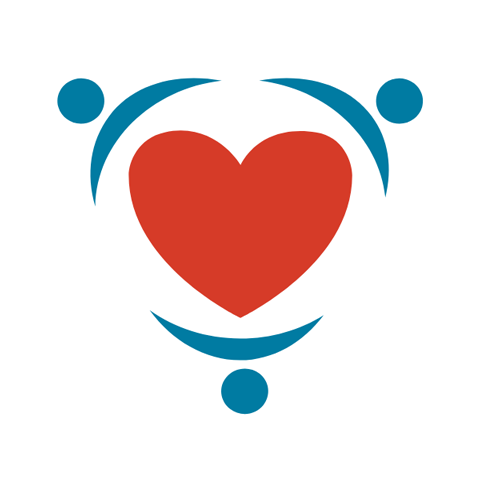
Pittsburgh, PA – On the eve of celebrated pitchman Billy Mays’ funeral, the SCA Foundation extends its condolences to his family, friends and fans, and calls upon everyone to do their part in increasing survival from cardiac anomalies. His apparent death from cardiac arrest, brought on by a heart attack at home, is a painful reminder that approximately 80 percent of all cardiac arrest events occur in the home. More about Billy Mays.
“Those of us who got to know Billy Mays through the television screen saw him as larger than life,” said Bobby Khan, MD, Chairman of the SCA Foundation Board of Directors, Fulbright Scholar, Associate Professor at Emory University and Director of the Coronary Care Unit and Cardiovascular Research at Grady Memorial Hospital in Atlanta.
“But even the strongest among us, young and old, can fall victim to heart disease. To increase survival, we all must play a role in prevention and preparation: First, take steps to live a heart healthy lifestyle, with a proper diet and exercise. Second, be aware of the signs and symptoms of the most common heart conditions—heart attack and cardiac arrest—and the distinct difference among them. And third, be prepared to act in the event of a cardiac emergency, knowing when to call 9-1-1, and being trained in CPR and AED use.”
Heart Attack vs. Sudden Cardiac Arrest
Heart attack occurs when part of the heart’s blood supply is reduced or blocked, causing the heart muscle to become injured or die. The person is awake and the heart is still beating. He or she may complain of one or more of the signs and symptoms of heart attack. Most heart attacks involve discomfort in the center of the chest that lasts more than a few minutes or that goes away and comes back. Some heart attack victims may experience mild intermittent chest discomfort that comes and goes over a period of days. These are early “warning signs” that may precede a heart attack. Chest discomfort can feel like uncomfortable pressure, squeezing or fullness, and can evolve into crushing pain if nothing is done.
However, symptoms are often quite different, and therefore less recognized, in women. In addition to the more common symptoms, women may experience pain or discomfort in the jaw, neck, shoulder, back or arms; feeling weak, lightheaded or faint; stomach upset; unusual tiredness or shortness of breath.
If you suspect a possible heart attack, call 9-1-1 immediately. Do not attempt to go to the hospital or take a victim to the hospital yourself. Have the person rest or lie down while waiting for emergency medical services (EMS) to arrive. Sudden cardiac arrest (SCA) is the sudden, unexpected loss of heart function, breathing and consciousness.
While heart attack is described as a “plumbing problem,” SCA is more of an “electrical problem” that prevents the heart from functioning effectively. Heart attack can lead to SCA, but there are many other causes, such as congenital abnormalities, severe heart failure, electrocution, trauma and drug overdose. When sudden cardiac arrest occurs, the person is not awake and the heart is not beating.
Unfortunately, about two-thirds of unexpected cardiac deaths will occur without prior indication of heart disease. As a result, approximately 250,000 people die every year from SCA in the U.S. alone. In fact, more people die each year from SCA than from colorectal cancer, breast cancer, prostate cancer, auto accidents, AIDS, firearms, and house fires combined.
If you suspect sudden cardiac cardiac arrest, calls 9-1-1 immediately, checks for signs of life, and if there are none, perform CPR and use the nearest automated external defibrillator (AED). This is lifesaving care that any layperson can provide. It is best to be trained in CPR and the use of AEDs, but even without formal training, the rescuer can push hard and fast on the victim’s chest and follow the directions given by an AED, while waiting for EMS to arrive.
The worst thing you can do for an SCA victim is nothing. Your actions can only help.
For more information click here.
About the Sudden Cardiac Arrest Foundation
The Sudden Cardiac Arrest (SCA) Foundation is a national non-profit 501(c)3 organization based in Pittsburgh, Pennsylvania. Its mission is to serve as an information clearinghouse and social marketing force focused on raising awareness about sudden cardiac arrest (SCA), and stimulating attitudinal and behavioral changes that will help save more lives. Initiatives include an online registry for SCA survivors, an online community for people affected by SCA, an awareness campaign for schools, and the "People Saving People" awards. The SCA Foundation maintains a national database of survivors and experts available to speak with the media. For more information, visit http://www.sca-aware.org. CONTACT: Carissa B. Caramanis O’Brien Red Box Communications for the Sudden Cardiac Arrest Foundation Phone: 978-875-2020 Email: carissao@redboxcommunications.com Twitter: http://twitter.com/carissao www.sca-aware.org/sca-newsroom
